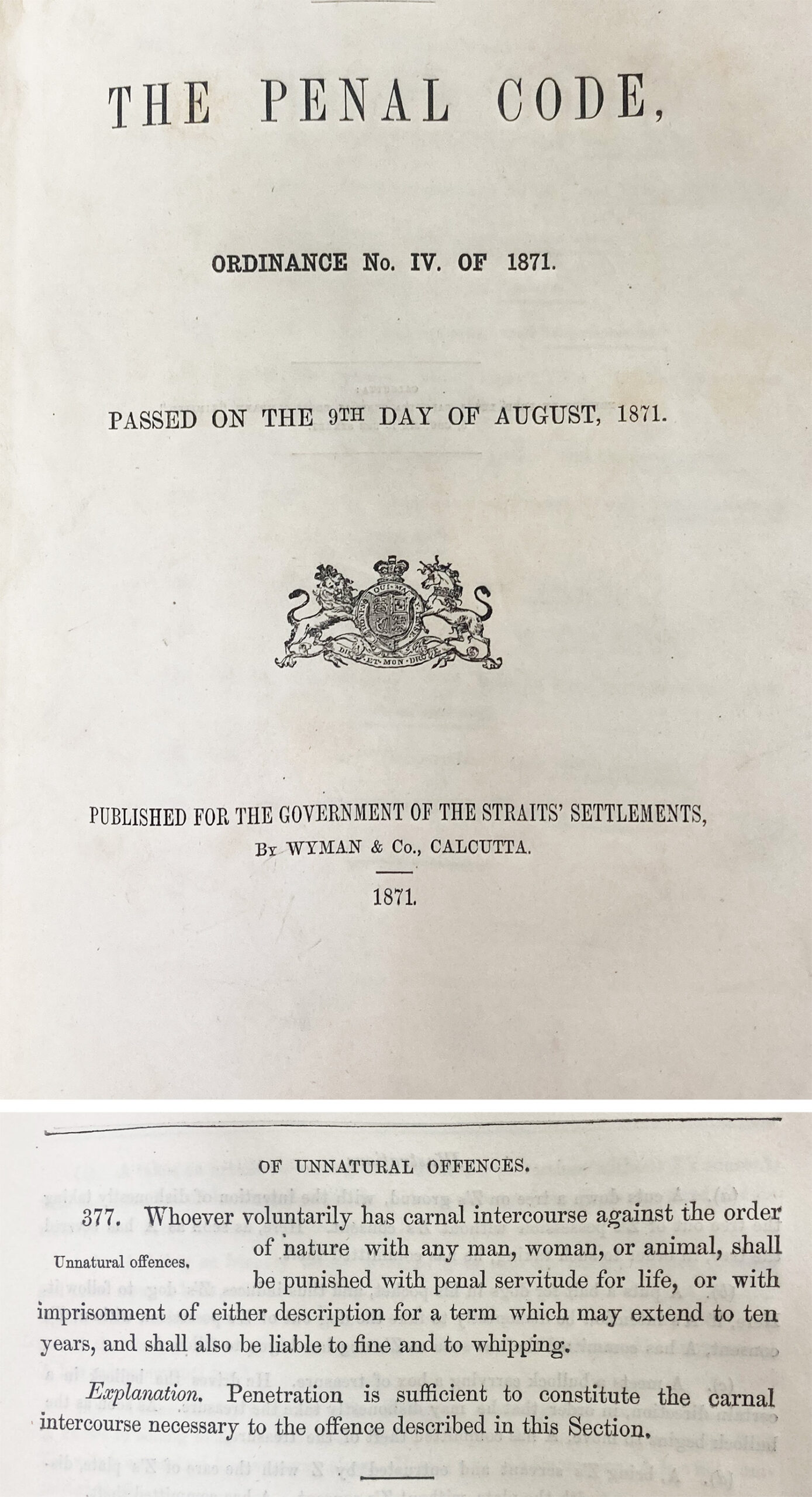
1871: Section 377 of the Indian Penal Code, which criminalises homosexual intercourse [it was considered an ‘unnatural offence’]. The Indian Penal Code, created in 1860 for Britain’s Indian colonies, was applied to other colonies in the British Empire. Here, it is applied to the Straits settlements (today’s Malaysia and Singapore). Catalogue ref: CO 274/2
Section 377 still exists today in several countries that were formerly British colonies, including Malaysia.
Transcript
THE PENAL CODE
ORDINANCE No. IV of 1871
PASSED ON THE 9TH DAY OF AUGUST, 1871.
PUBLISHED FOR THE GOVERNMENT OF THE STRAITS SETTLEMENTS,
By WYMAN & CO, CALCUTTA.
1871.
OF UNNATURAL OFFENCES.
- Whoever voluntarily has carnal intercourse against the order of nature with any man, woman, or animal, shall be punished with penal servitude for life, or with imprisonment of either description for a term which may extend to ten years, and shall also be liable to fine and to whipping.
Explanation. Penetration is sufficient to constitute the carnal intercourse necessary to the offence described in this Section.
- Why do you think this law has been applied to the Straits Settlements (a group of British colonies that today form part of Malaysia and Singapore)?
- How does this law reflect British attitudes and laws towards homosexuality at the time?
- This law, called Section 377 still exists in several countries that were formerly British colonies. Find out if Section 377 still exists/has been repealed in the following countries?
- India
- Singapore
- Malaysia
- Bangladesh
- Pakistan
- Myanmar
- What can you find out about colonial laws on homosexuality in Africa under British colonial rule? What did those laws look like in Uganda or Nigeria?
NB Some of these countries do not have the same names now as they did in the period under British colonial administration.
